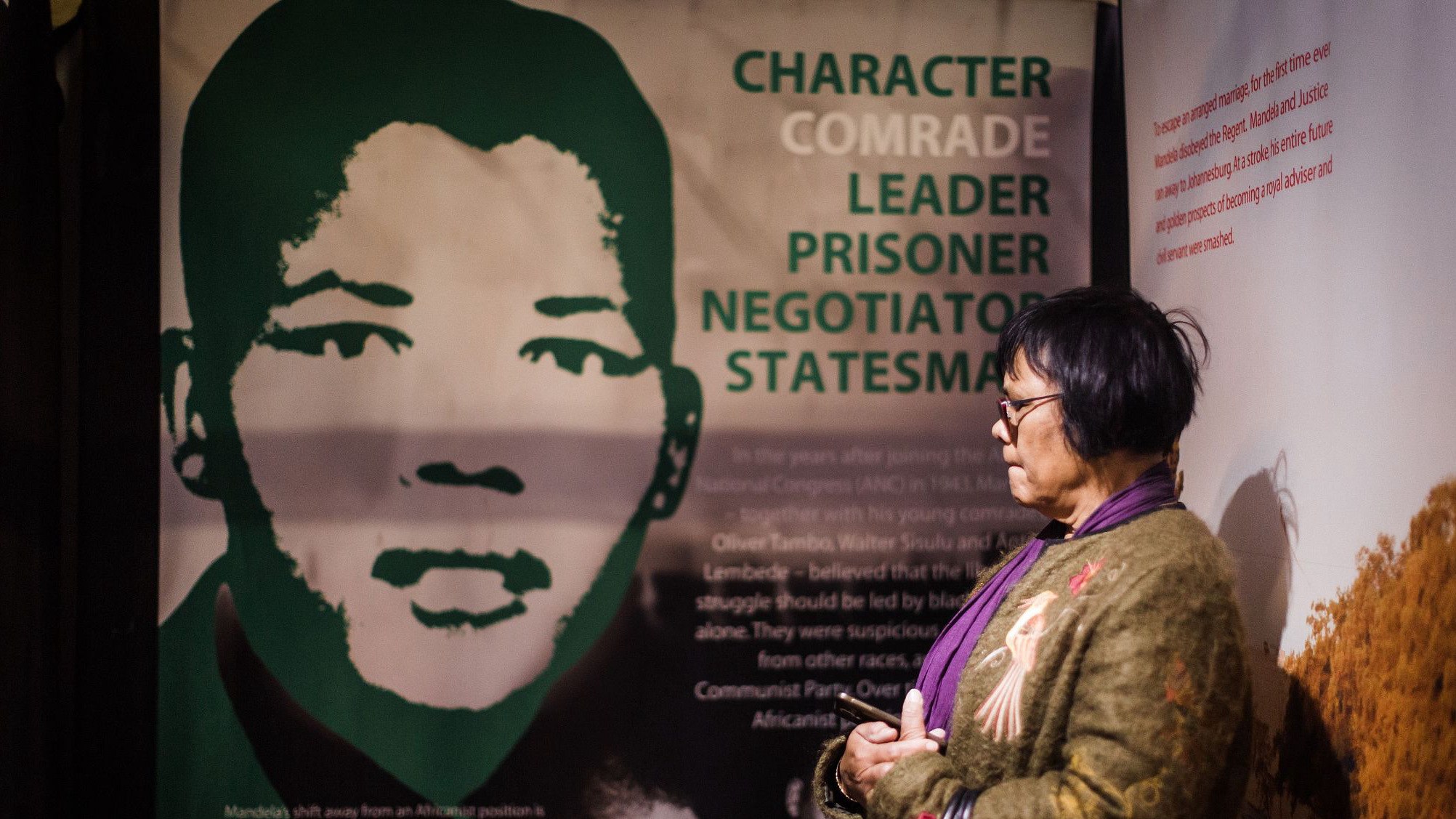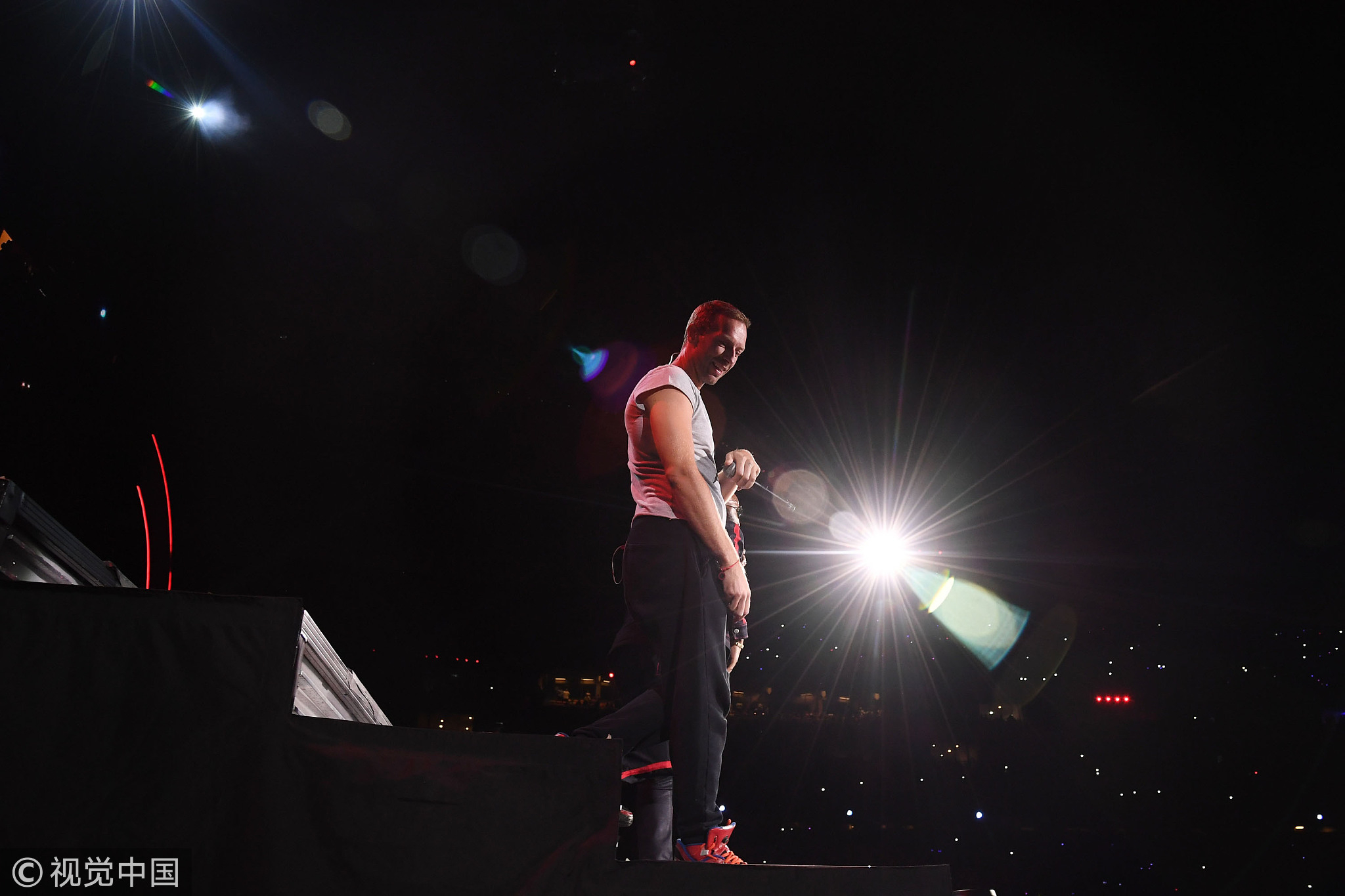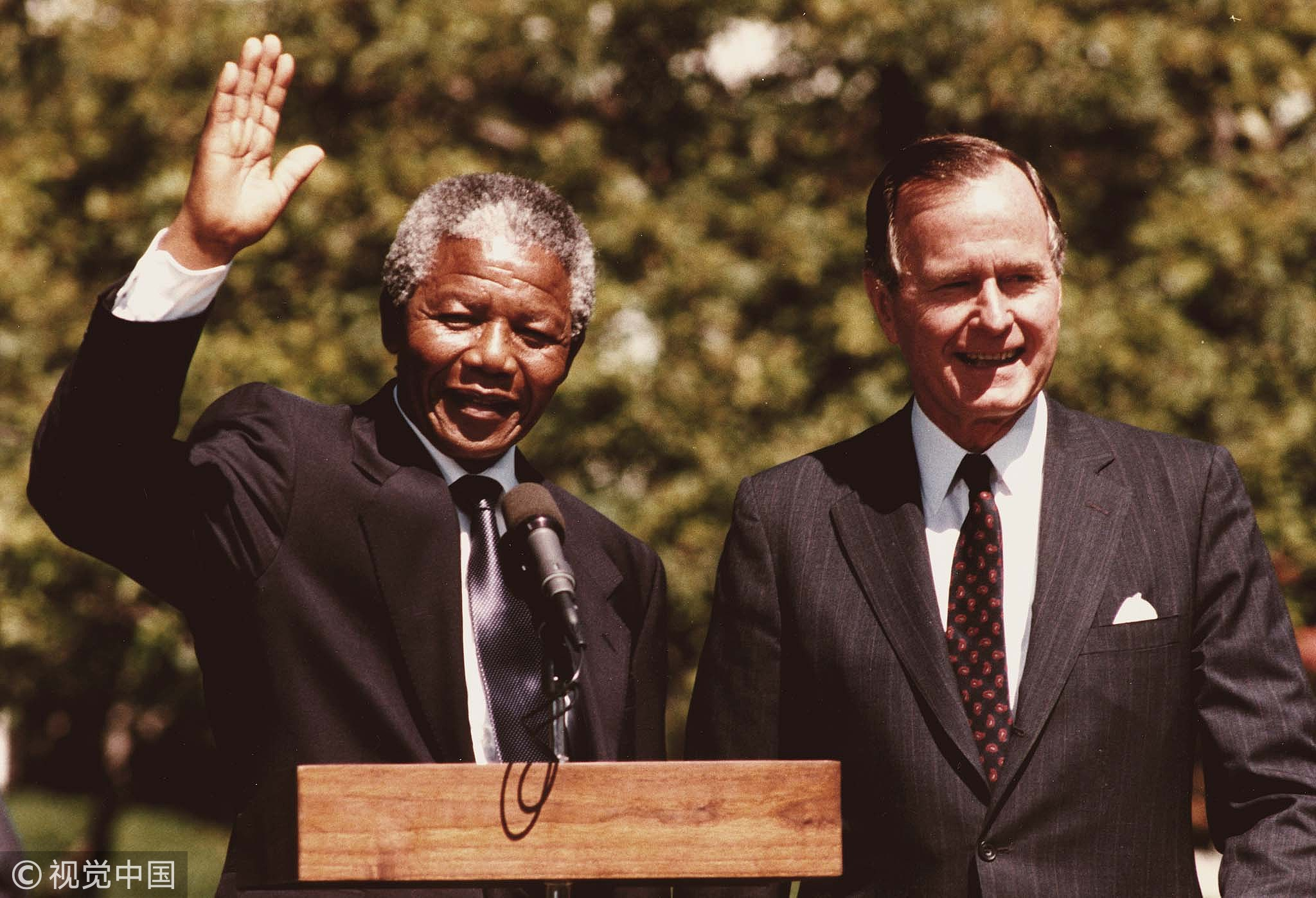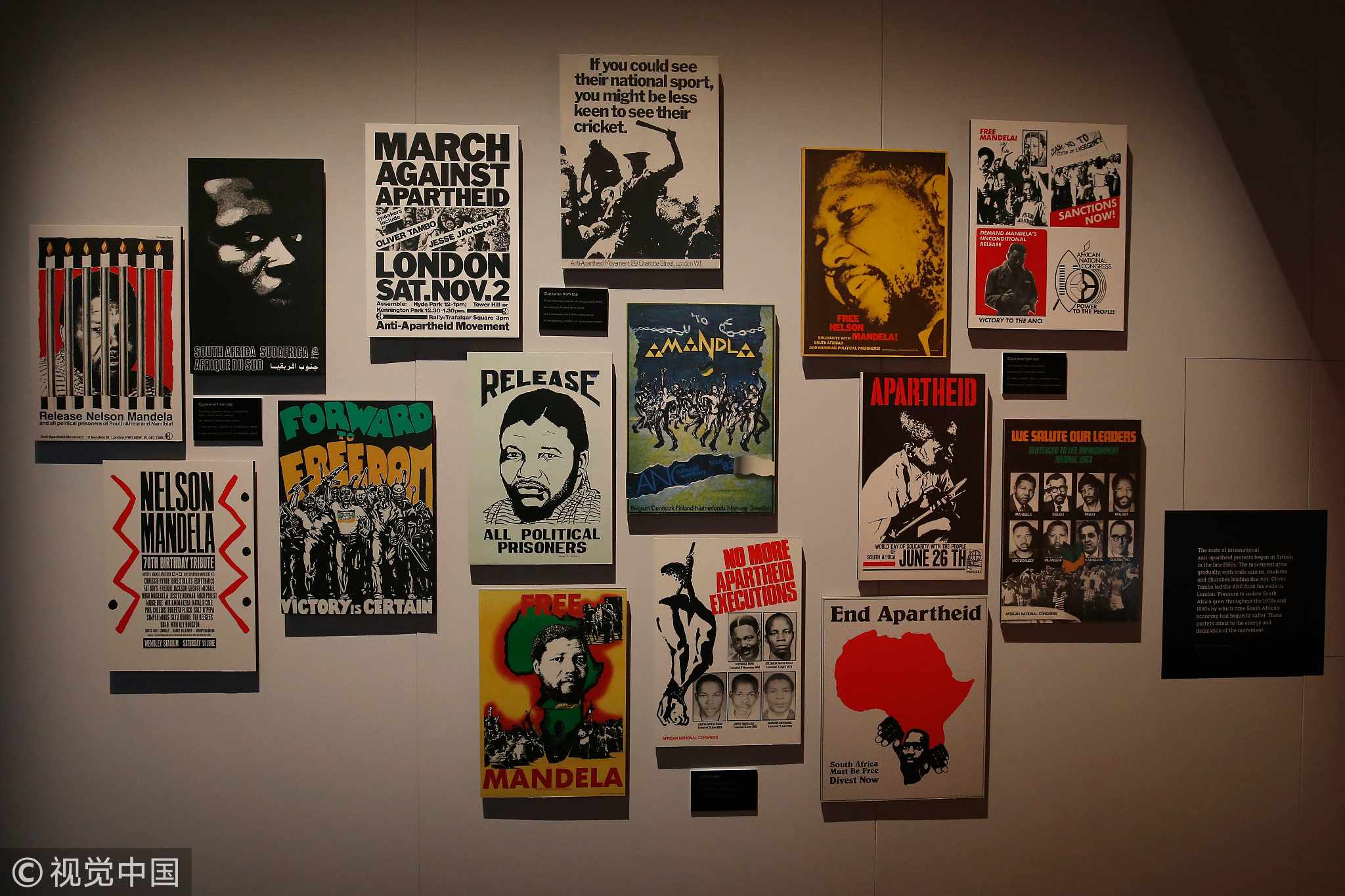
Opinions
09:39, 05-Dec-2018
Opinion: Long walk to freedom – commemorating Mandela
Updated
08:34, 08-Dec-2018
Lawson Naidoo

Editor's note: Lawson Naidoo is the executive director of the Council for the Advancement of the South African Constitution. The article reflects the author's opinion, and not necessarily the views of CGTN.
South Africa and the world are commemorating the fifth anniversary of the death of Nelson Mandela, a true global icon, in the same year that we celebrate the centenary of his birth.
On Sunday, the Soccer City Stadium in Soweto, which staged the 2010 World Cup Final, hosted the Global Citizen Festival, an entertainment extravaganza that brought the world to South Africa to highlight the fight against poverty everywhere – billions of dollars were pledged to fight poverty, improve education opportunities and combat HIV/AIDS, issues that Mandela himself prioritized.

Chris Martin performs during the Global Citizen Festival: Mandela 100 at FNB Stadium in Johannesburg, South Africa, December 2, 2018. /VCG Photo
Chris Martin performs during the Global Citizen Festival: Mandela 100 at FNB Stadium in Johannesburg, South Africa, December 2, 2018. /VCG Photo
Earlier this year, the Nelson Mandela Annual Lecture featured former U.S. president Barack Obama making his most significant speech since leaving office. Even in death, Madiba, as he was fondly called, is able to mobilize people across the planet – his lifelong commitment to humanitarianism, freedom and equality continues to resonate.
In a world that has eschewed multilateralism, we are more polarized than at any time in recent history, with reactionary populism on the rise. Wars and conflicts impose more hardships on marginalized people, exploiting their vulnerability.
It is a world order dominated by dangerous rhetoric, a far cry from the measured, principled statesmanship exemplified by Nelson Mandela as he sought to bring the people of the world together, bound by our common humanity and respect for each other.
But it is not only on the global stage that Mandela's legacy is being spoiled. Here in South Africa, grand corruption and the capture of state institutions to benefit politically connected elites were taken to levels almost unimaginable in a country with democratic foundations.
The government of South Africa's former president Jacob Zuma was culpable in enabling state capture to happen. Only now with a Judicial Commission of Inquiry into this phenomenon are we becoming aware of the true extent of the looting of state resources, exposing the perpetrators.

South African anti-apartheid leader and African National Congress member Nelson Mandela (L) waves to the media and fans after finishing his joint statement with former U.S. president George Bush (R) on the White House South Lawn in Washington, D.C., June 24, 1990. /VCG Photo
South African anti-apartheid leader and African National Congress member Nelson Mandela (L) waves to the media and fans after finishing his joint statement with former U.S. president George Bush (R) on the White House South Lawn in Washington, D.C., June 24, 1990. /VCG Photo
The abyss into which we have descended, forcing the state to the precipice of a fiscal cliff, stands in sharp contrast to the vision of a united, non-racial, non-sexist, peaceful and prosperous democracy that Mandela dreamed of, and for which he and many others sacrificed so much.
There are some in South Africa who are now mischievously laying the blame for our collective failure to tackle the legacy of apartheid at the door of Nelson Mandela.
They argue that the negotiations that led to the demise of apartheid was a shame, that the Constitution engineered by a democratically elected Constitutional Assembly is fatally flawed, and that Mandela was a "sell-out," pandering to the interests of "white monopoly capital" (new swear word in our lexicon), rather than singularly advocating "radical economic transformation," a slogan that is used by populists as a lazy substitute for rational debate on what needs to be fixed to move South Africa forward.
What the pseudo-radicals do not appear to understand is that firstly negotiations inevitably involve some compromises and secondly that the Constitution provides the framework for socio-economic transformation.
Indeed the preamble declares that we should:
"Heal the divisions of the past and establish a society based on democratic values, social justice, and fundamental human rights."
We must all accept that we have failed to use our political power to advance the vision of the Constitution to meaningfully improve the lives of many of our people.

A view of "Mandela My Life: The Official Exhibition" at Melbourne Museum in Melbourne, Australia, September 21, 2018. /VCG Photo
A view of "Mandela My Life: The Official Exhibition" at Melbourne Museum in Melbourne, Australia, September 21, 2018. /VCG Photo
Economic and social inequality thrive – the Gini-coefficient in South Africa has worsened since the end of apartheid. We have a stagnant economy, record levels of unemployment (especially among young people) and debilitating poverty that sits alongside conspicuous material consumption by a new and old elite, black and white. This cannot be attributed to the shortcomings of Nelson Mandela or the Constitution.
It is indeed the undermining of the Constitution and the fundamental tenets of democracy that provide the biggest challenges confronting us today – the Zuma administration treated the Constitution with contempt, systemically weakening key organs of state, including Parliament in order to facilitate the brazen theft of public resources.
A glimmer of hope, a "new dawn" is offered under the Presidency of Cyril Ramaphosa who took over from Zuma in February this year. Ramaphosa is a constitutionalist of note, having played a key role in the negotiations in 1994, and then presided over the Constitution drafting process.
The Ramaphosa government is tackling our challenges head-on, containing public spending, managing the budget deficit and cleaning out corrupt and inefficient state entities.
In his enthusiastic efforts to attract foreign investment on the work stage – at the UN, BRICS, G20 and European Union, Ramaphosa has evoked the memory of Nelson Mandela to remind us all that it is indeed a "Long Walk to Freedom."
(Cover: A woman visits the Nelson Mandela Capture Site Apartheid Museum in Howick some 125 kilometers outside of Durban, during the 56th commemoration held at the Nelson Mandela Capture Site in Howick, August 5, 2018. /VCG Photo)
(If you want to contribute and have specific expertise, contact at opinions@cgtn.com.)

SITEMAP
Copyright © 2018 CGTN. Beijing ICP prepared NO.16065310-3
Copyright © 2018 CGTN. Beijing ICP prepared NO.16065310-3